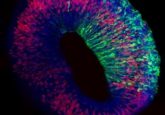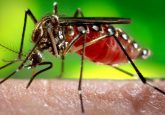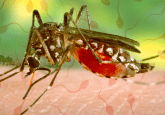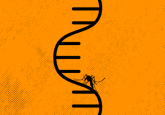Mosquito saliva may hold the answers to tropical disease vaccine development
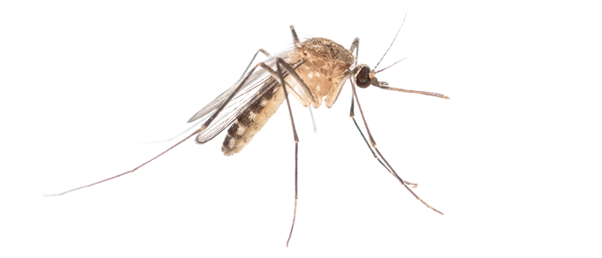
A molecule in mosquito saliva has been identified as a potential vaccination target, providing protection against viruses that cause Dengue and Zika.
Supervisor Clive McKimmie, lead author Daniella Lefteri and colleagues from the University of Leeds (UK) have discovered a proinflammatory peptide in mosquito saliva, called sialokinin, that has the potential to be a novel vaccination target against Yellow Fever, Dengue and Zika viruses. Currently, there is no vaccination or treatment for these dangerous diseases, which are becoming more threatening globally. Therefore, finding a viable vaccination target is the first step in developing preventative protection and effective treatments.
The Aedes mosquito is a common vector for spreading diseases in mammals. When bitten, the mosquito’s saliva enters the body where any viruses contained in the saliva can infect and replicate. Sialokinin is specific to insects but acts similarly to vertebrate tachykinin, neuropeptides throughout the skin that mediate blood vessel dilation and inflammatory responses. Previous research has demonstrated the role of sialokinin in expanding blood vessels and increasing the amount of blood near the site of the mosquito bite. However, it was previously unclear how sialokinin influenced infection.
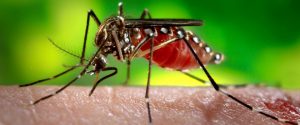 The role of saliva in malaria diagnostics
The role of saliva in malaria diagnostics
Dr Benji Pretorius, managing director of Erada Technology Alliance and practicing emergency unit doctor, has faced the challenge of dealing with malaria throughout his career. Now, during the pandemic, recognizing and correctly diagnosing malaria has become more difficult because the disease shares symptoms with the novel COVID-19 virus.
The current study investigated the role of sialokinin in mouse models of Zika and Semliki Forest viral infections. Researchers demonstrated that sialokinin increases the permeability of blood vessels near the infection site, providing greater opportunity for the virus to leak into the surrounding tissue and replicate. The changes in blood vessel permeability by sialokinin make the infection worse as it allows the virus to spread rapidly throughout the body. McKimmie confirms, “Our research suggests that blocking sialokinin, for example through a vaccine or a topical treatment, may be an exciting new approach that prevents severe disease following infection with numerous distinct viruses.”
Additionally, researchers may have uncovered the reason why some types of mosquitoes do not spread infections. “Our findings may also explain why some mosquitoes can spread infection to humans, while some cannot. Anopheles mosquitoes cannot spread most viruses. Crucially, we show that their saliva, which cannot cause leaky blood vessels, and cannot enhance infection of virus in mammalian host, does not contain sialokinin,” reports Lefteri.
In order to develop robust vaccinations and complete treatments for such a wide range of diseases, it is essential to identify other molecular targets within mosquito saliva that enhance infection. McKimmie suggests, “One way to do this would be to develop a vaccine that generates neutralising antibodies that bind to these factors, and thereby stop them from working and helping the virus.”


